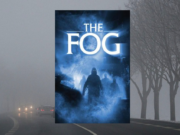by Mary W Maxwell, LLB
Eric Blair was born in India in 1903 lived mostly in England. He died at age 46 in 1950 of a lung ailment. He wrote many books, using the pen name George Orwell, of which the most famous is 1984. I believe a strong case can be made that he was an insider. However, there is nothing in print on that view as far as I know. For now, I will just give the party line which is that he fought in the Spanish Civil war of 1937 – as did many Lefty’s. He favored socialism but was very critical of Stalin’s dictatorship.
It is often said that his book Animal Farm was a critique of the Soviet type of polity. In my high school, in the 1960s, we were certainly taught that Orwell’s book 1984 was a critique of Communist totalitarianism.
Part 1 of this series looks only at one of the chapters in Orwell’s Animal Farm, Chapter 5. Most of it is printed below for your reading pleasure. (Bolding added in case you want only to skim it.) I am sure you will find that it applies perfectly to the “free world” of today. The features are:
* a democracy breaks up into factions
* the main mode of debating at big meetings consists of ridiculing the opponent’s view
*a strong man emerges
*he will not share the leadership with any other strong person
*he buys off the weak to act as supporters, to give him the numbers
*being a ruthless person, he is happy to kill
* the less astute members of the group don’t have a clear sense of what is happening
*no one even thinks of knocking off this unfair leader
*he has well-armed henchmen who keep everyone at bay
*reasoned debate, as to what the society needs or wants, does not even take place
As could be expected much of the debate – pardon the term – about Orwell’s book consisted of whether he was a friend or foe of the Russians (in 1940s when Uncle Joe was England’s ally). Needless to say, much was also made (on the Left) about his statement “All animals are equal but some are more equal than others.”
The book Animal Farm is no sociobiological investigation of the relative IQ of livestock species. Orwell had to make it a good read and so he has the pigs operate as the leaders, the sheep operate as, well, sheep if you know what I mean, and ducks and geese as friendly observers. His use of dogs is not flattering to canine species. But still, even serious academics put the question: “Was it unfair that all the animals were not equal?”
Laughable.
Please read and comment if you wish.
Chapter 5 of Animal Farm (1945) by George Orwell
…. In January … the earth was like iron, and nothing could be done in the fields. Many meetings were held in the big barn, and the pigs occupied themselves with planning out the work of the coming season. It had come to be accepted that the pigs, who were manifestly cleverer than the other animals, should decide all questions of farm policy, though their decisions had to be ratified by a majority vote.
This arrangement would have worked well enough if it had not been for the disputes between Snowball and Napoleon. These two disagreed at every point where disagreement was possible. If one of them suggested sowing a bigger acreage with barley, the other was certain to demand a bigger acreage of oats, and if one of them said that such and such a field was just right for cabbages, the other would declare that it was useless for anything except roots. Each had his own following, and there were some violent debates.
At the Meetings Snowball often won over the majority by his brilliant speeches, but Napoleon was better at canvassing support for himself in between times. He was especially successful with the sheep. Of late the sheep had taken to bleating “Four legs good, two legs bad” both in and out of season, and they often interrupted the Meeting with this. It was noticed that they were especially liable to break into “Four legs good, two legs bad” at crucial moments in Snowball’s speeches.
Snowball had made a close study of some back numbers of the Farmer and Stockbreeder which he had found in the farmhouse, and was full of plans for innovations and improvements. He talked learnedly about field drains, silage, and basic slag, and had worked out a complicated scheme for all the animals to drop their dung directly in the fields, at a different spot every day, to save the labour of cartage.
Napoleon produced no schemes of his own, but said quietly that Snowball’s would come to nothing, and seemed to be biding his time. But of all their controversies, none was so bitter as the one that took place over the windmill.
In the long pasture, not far from the farm buildings, there was a small knoll which was the highest point on the farm. After surveying the ground, Snowball declared that this was just the place for a windmill, which could be made to operate a dynamo and supply the farm with electrical power. This would light the stalls and warm them in winter, and would also run a circular saw, a chaff-cutter, a mangel-slicer, and an electric milking machine.
The animals had never heard of anything of this kind before … and they listened in astonishment while Snowball conjured up pictures of fantastic machines which would do their work for them while they grazed at their ease in the fields or improved their minds with reading and conversation.
Within a few weeks Snowball’s plans for the windmill were fully worked out. He was closeted there for hours at a time…. Gradually the plans grew into a complicated mass of cranks and cog-wheels, covering more than half the floor, which the other animals found completely unintelligible but very impressive. All of them came to look at Snowball’s drawings at least once a day. Even the hens and ducks came, and were at pains not to tread on the chalk marks. Only Napoleon held aloof. He had declared himself against the windmill from the start.
The whole farm was deeply divided on the subject of the windmill. Snowball did not deny that to build it would be a difficult business. … But he maintained that it could all be done in a year. And thereafter, he declared, so much labour would be saved that the animals would only need to work three days a week. Napoleon, on the other hand, argued that the great need of the moment was to increase food production, and that if they wasted time on the windmill they would all starve to death. The animals formed themselves into two factions under the slogan, “Vote for Snowball and the three-day week” and “Vote for Napoleon and the full manger.”
Apart from the disputes over the windmill, there was the question of the defence of the farm. … As usual, Snowball and Napoleon were in disagreement. According to Napoleon, what the animals must do was to procure firearms and train themselves in the use of them. According to Snowball, they must send out more and more pigeons and stir up rebellion among the animals on the other farms.
The one argued that if they could not defend themselves they were bound to be conquered, the other argued that if rebellions happened everywhere they would have no need to defend themselves. The animals listened first to Napoleon, then to Snowball, and could not make up their minds which was right; indeed, they always found themselves in agreement with the one who was speaking at the moment.
At last the day came when Snowball’s plans were completed. At the Meeting on the following Sunday the question of whether or not to begin work on the windmill was to be put to the vote. When the animals had assembled in the big barn, Snowball stood up and, though occasionally interrupted by bleating from the sheep, set forth his reasons for advocating the building of the windmill.
Then Napoleon stood up to reply. He said very quietly that the windmill was nonsense and that he advised nobody to vote for it, and promptly sat down again; he had spoken for barely thirty seconds, and seemed almost indifferent as to the effect he produced. At this Snowball sprang to his feet, and shouting down the sheep, who had begun bleating again, broke into a passionate appeal in favour of the windmill. Until now the animals had been about equally divided in their sympathies, but in a moment Snowball’s eloquence had carried them away….
By the time he had finished speaking, there was no doubt as to which way the vote would go. But just at this moment Napoleon stood up and, casting a peculiar sidelong look at Snowball, uttered a high-pitched whimper of a kind no one had ever heard him utter before.
At this there was a terrible baying sound outside, and nine enormous dogs wearing brass-studded collars came bounding into the barn. They dashed straight for Snowball, who only sprang from his place just in time to escape their snapping jaws. In a moment he was out of the door and they were after him. Too amazed and frightened to speak, all the animals crowded through the door to watch the chase. Snowball was racing across the long pasture that led to the road. He was running as only a pig can run, but the dogs were close on his heels. … . Then he put on an extra spurt and, with a few inches to spare, slipped through a hole in the hedge and was seen no more.
Silent and terrified, the animals crept back into the barn. In a moment the dogs came bounding back. At first no one had been able to imagine where these creatures came from, but the problem was soon solved: they were the puppies whom Napoleon had taken away from their mothers and reared privately. Though not yet full-grown, they were huge dogs, and as fierce-looking as wolves. They kept close to Napoleon. It was noticed that they wagged their tails to him in the same way as the other dogs had been used to do to Mr. Jones.
Napoleon, with the dogs following him, now mounted on to the raised portion of the floor where Major had previously stood to deliver his speech. He announced that from now on the Sunday-morning Meetings would come to an end. They were unnecessary, he said, and wasted time. In future all questions relating to the working of the farm would be settled by a special committee of pigs, presided over by himself. The animals would still assemble on Sunday mornings to salute the flag, sing Beasts of England, and receive their orders for the week; but there would be no more debates.
In spite of the shock that Snowball’s expulsion had given them, the animals were dismayed by this announcement. Several of them would have protested if they could have found the right arguments…. Some of the pigs themselves, however, were more articulate. Four young porkers in the front row uttered shrill squeals of disapproval, and all four of them sprang to their feet and began speaking at once. But suddenly the dogs sitting round Napoleon let out deep, menacing growls, and the pigs fell silent and sat down again. Then the sheep broke out into a tremendous bleating of “Four legs good, two legs bad!” which went on for nearly a quarter of an hour and put an end to any chance of discussion.
Afterwards Squealer was sent round the farm to explain the new arrangement to the others.
“Comrades,” he said, “I trust that every animal here appreciates the sacrifice that Comrade Napoleon has made in taking this extra labour upon himself. Do not imagine, comrades, that leadership is a pleasure! On the contrary, it is a deep and heavy responsibility. No one believes more firmly than Comrade Napoleon that all animals are equal. He would be only too happy to let you make your decisions for yourselves. But sometimes you might make the wrong decisions, comrades, and then where should we be? Suppose you had decided to follow Snowball, with his moonshine of windmills–Snowball, who, as we now know, was no better than a criminal?”
“He fought bravely at the Battle of the Cowshed,” said somebody.
“Bravery is not enough,” said Squealer. “Loyalty and obedience are more important. And as to the Battle of the Cowshed, I believe the time will come when we shall find that Snowball’s part in it was much exaggerated. Discipline, comrades, iron discipline! That is the watchword for today. One false step, and our enemies would be upon us. Surely, comrades, you do not want Jones back?”
Once again this argument was unanswerable. Certainly the animals did not want Jones back; if the holding of debates on Sunday mornings was liable to bring him back, then the debates must stop. Boxer, who had now had time to think things over, voiced the general feeling by saying: “If Comrade Napoleon says it, it must be right.” And from then on he adopted the maxim, “Napoleon is always right,” in addition to his private motto of “I will work harder.”
By this time the weather had broken and the spring ploughing had begun…. Napoleon, with Squealer and another pig named Minimus, who had a remarkable gift for composing songs and poems, sat on the front of the raised platform, with the nine young dogs forming a semicircle round them, and the other pigs sitting behind. The rest of the animals sat facing them in the main body of the barn. Napoleon read out the orders for the week in a gruff soldierly style, and after a single singing of Beasts of England, all the animals dispersed.
On the third Sunday after Snowball’s expulsion, the animals were somewhat surprised to hear Napoleon announce that the windmill was to be built after all. He did not give any reason for having changed his mind, but merely warned the animals that this extra task would mean very hard work, it might even be necessary to reduce their rations. The plans, however, had all been prepared, down to the last detail. A special committee of pigs had been at work upon them for the past three weeks. The building of the windmill, with various other improvements, was expected to take two years.
That evening Squealer explained privately to the other animals that Napoleon had never in reality been opposed to the windmill. On the contrary, it was he who had advocated it in the beginning, and the plan which Snowball had drawn on the floor of the incubator shed had actually been stolen from among Napoleon’s papers. The windmill was, in fact, Napoleon’s own creation. ….
(The Cliff Notes for the whole book):































I spent a few days in Barcelona last year with a copy of Homage to Catalonia and had the same thoughts. I too could find nothing to validate my views. Glad to know that someone else in the world shares them. I hope you’re well Mary. Love and respect from Scotland.
Eric Blair, like almost all political thinkers of the past century, never grasped that the real class war was about POWER: power in the hands of one or a select few, versus power in the hands of all.
Blair’s miscomprehension became universal over the twentieth century, greatly encouraged by the investment banker elite who, by 1975, controlled curriculum in all western universities and think thanks.
Actually, Marx pioneered this bumbling preoccupation with warring hierarchies, insisting that committees representing The people should rule, inevitably defeating the banker/aristocrat/industrialist alliance. What Marx never grasped is that the committees formed a vast pyramid, the top executive of which must inevitably accumulate so much power he was “corrupted absolutely” as Lord Acton put it so succinctly.
Marx simply proposed that a new hierarchy would replace the old. He never understood that all hierarchies become repressive; or that all Consensus Societies are peaceful and prosperous.
The phony war between Capitalists and Communists continued for a century.
By the year 2000, all books in public libraries which focused on People Power in particular, and genuine democracy in general, had been removed and burned… and I mean this literally, not merely figuratively. Most ‘obsolete’ books were given away free but any dealing with genuine democracy, had to be burned. And this happened.
For example, a once-popular book about the Irish Monks, who canvassed various forms of government from the 3rd century to the 8th, greatly admired the democratic kingdoms of Finland in which the populace formulated all policy and the king was responsible for implementation and administration. This kind of balanced oversight and documentation was largely the outcome of balanced membership of the monks… most were married, one third were women, and the greatest monk of all was a woman.
The Vatican, then controlled by an alliance of paedophiles, misogynists and homosexuals (as it continues to be today) was outraged at the anti-hierarchism promulgated by the Irish Monks, and successfully imposed celibacy and misogyny by the end of the 8th century. This heralded the termination of the democracy conversation for a further nine centuries, until raised again by Thomas Paine in the 1790s.
His books, led by the Rights of Man, were vilified in England but were immensely popular in Europe and America and these formed the basis of the original drafts of the American Constitution. The founding fathers plotted erasure of his principles (ie All authority resides in The People; and The People shall decide the amount and form of expenditure of all taxes, and how these should be collected”.) and this task fell to James Maddison, who excised all such sentiments. He was rewarded with the 4th Presidency… which beats the shit out of thirty pieces of silver.
Many years later, it was realised that the Constitution had been knackered and thus began a series of desperate amendments which became known as the Bill of Rights, ten in all. These too, were knackered; as were the several others that followed.
The entities responsible for expurgation of the texts were essentially the same investment bankers known to us today as Wall St, Law Societies, and Reserve Banks.
This repression of genuine democracy was successful until the 3rd of December 1854, wherein hundreds of pro-democracy advocates (from Europe, Ireland, England, and the US) led a rebellion in Australia, which became known as the Eureka Stockade. There was immediate panic among the global bankers, particularly the Rothschilds and Rockefellers, and all conceivable resources were devoted to nipping this in the bud. Thus, it was believed, the imminent threat of global revolution was averted. The history they wrote re-branded the rebellion as being a squabble over gold-mining licences and the threat of the Yellow Peril. We call this ‘recorded history’.
By 1975, the bankers controlled the movie industry and almost all newspapers and TV stations. By 2000 they owned most publishers. Today, the only reason we are having this discussion is that the Internet caught them unawares and websites such as this continue to explore freedom and repression in all its forms.
Yet we continue to fail in the most important battle, salvaging genuine history. Thus, we debate issues using concepts supplied to us by the banker elite.
GREAT comment Tony – much to absorb and pursue – thank you
Before Eureka , the stonemasons and other trades were dying , in large numbers , from sunstroke and heat exhaustion working sunrise to sunset . As a result of their stand against the powers that be , Australia was the first country in the world to implement the eight hour working day .
Wow, thanks for that Tony! I was in Ballarat earlier only a few months ago visiting the Eureka Stockade Museum. How they continue to have the wool pulled over our eyes! Still trying to let that sink in!
Tis’ easy and acceptable by my ilk including myself to see the comparisons with our current politicians. The pigs are conspicious with only their names separating them from our own leaders.
FORCED DIVERSITY IS DIVISIVE
DEMOCRACY IS ILLUSION
IGNORANCE IS BLISS
We the people could organize a rebellion but come lunchtime the beer and BBQ would end it all.
Our complacency is our distraction and our fail.
Vale Catalonia, they tried
Vive Catalonia. Try again!
Yes!!! In fact we have a Eureka rally in Adelaide tomorrow at noon, outside Parliament House!!
Perhaps we should be holding it on a Sunday with a free sausage sizzle, can’t get around the liquor licencing!
It’s so frustrating (and sad) that people are more willing to sit back & whinge these days rather than educate themselves & be proactive.
We want to move mountains but now I’m sounding delusional?
I’m sure you all must have heard this song (one of my favourites) which seems to be fitting for this article….
https://www.youtube.com/watch?v=aPhWfSeMYHA
That’s really, really clever, despite the hero cow being referred to as a “he.”
The highlighted parts do map very closely on to the generally accepted allegorical reference: the Soviet revolution and the fight between Stalin and Napoleon. (The pigs are CP apparatchiks, the sheep are easygoing proletarians, etc.) What I mean is that any other allusion really is put there by us rather than him, apart from any sense in which it is about the sempiternal verities of power and corruption. He cared about the accuracy of its portrayal of the Soviet story, even going so far as to have Napoleon not leave the farm when it was under attack, seeing as Stalin had not left Moscow during the German invasion. To that extent it’s not really a “prophecy” in the sense an “insider” might be expected to produce.
Regarding that word “insider”: I can’t see in what sense he was, in the sense of pursuing or abetting retrograde or dastardly acts, or even being at all comfortable with them. He was a fairly, but not perfectly well-connected intellectual. He had trouble getting Animal Farm published: T.S. Eliot rejected it in his publisher’s capacity, as not helpful to the war effort.
But maybe, Mary, I’ll be convinced otherwise. Looking forward to reading the updated Boston book.
Has the person who said Orwell had no handle on power read 1984? To be honest, I thought all the references to 1984 when Trump became president were absolutely naff. But for some reason I did find myself thinking about that book in 2017. Now, 1984: that book certainly was a prophecy, but I believe it was one produced simply from an observant imagination, and with a satiric touch, rather than being some kind of H.G. Wells or Huxley “I know because I’ve been told it’s going to be like this”. What does it contain? A false flag operation, mass surveillance, doublethink. But in large part because these things were already going on…
Rory. First of all, welcome back! Great to see you. Gee I haven’t heard the word SEMPITERNAL in a while.
OK I take your and Berry’s (below) criticisms to heart. But even when I was saying Orwell was an insider I didn’t mean he was a baddy. I meant indeed like HG Wells in “Open Conspiracy” circa 1928.
Wells was a school teacher I think.
So Orwell knew about TV watching you and even picking up your heartbeat. I am told that my cell phone can do a lot more.
At the end when Winston finally loves Big Brother I think that also means he was so drowned in lies that he also LOVED THE LIE. Surely Tavistock holds the copyright on that. Could an ordinary bloke have guessed it?
Rory you are an expert in “people loving the lie.” And please give us the reference again on “the best book about 7/7 as I have lost it. Boston revised book due out in a twinkling….
Great to hear from you, Mary. Point well taken about not reaching a conclusion. I think it’s better to hazard a guess about things, and in some of my writing am becoming a little less formal.
Here’s Tom Secker’s excellent book: “Spies, Secrets and 7/7”. PDF and Kindle files at the link below. On Amazon too.
http://www.investigatingtheterror.com/Secrets__Spies_and_7_7.htm
What do you mean by “an insider”?
And what’s that conclusion based on exactly?
Taking hold of certain truths doesn’t mean you automatically embody ALL truth. As this guy says(at around 8.20 min)“you can have someone operating in two spirits at the same time”:
https://www.youtube.com/watch?v=mQdN0KCDvFU
Actually I’d say its more common than not. Certainly applies to Yours Truly.
Berry, by “Insider” I meant that Orwell (mainly in his book 1984) seems to me to have received information from the powerful about what they were planning to do.
I don’t have his book handy to quote what he said about weather control, but the average British writer of 1949 would not have been aware of such technical wizardry.
You ask on what do I base my “conclusion”. It is not a conclusion. I am guessing. I don’t conclude something unless i have exhausted the sources (to my own satisfaction) such that I would dare to try to persuade others.
I conclude that the case against Jahar is fake. I conclude that at least some Famcourt judges are deliberatly assisting the pedophiles. I conclude that Hurricane Katrina (2005) was an inside job. I conclude that there are many excellent cancer cures that have been suppressed. Etc.
But even where I think the material is conclusive I will jump over to the other side if I get sperior evidence of their story. I guess it’s within the realm of conceivability that Martin Bryant shot the Mikac children. (Show me! show me!)
Or that the moon is made of green cheese. Having not been to the moon myself I can’t say for sure. And occasionally I say way-out things just in case there is a taker. For example I think Bill Clintion and Monica Lewinski did not have any kind of tryst at all. Behold I got a taker today on my suspicion of Orwell (Julie Macgregor, above). Amazing.
I don’t think Orwell was anything more than a keen observer of human nature who, like most of us, had significant shortcomings. I mean, apart from the above exert, I’ve not read “Animal farm”, but the idea that aristocrats are just badly behaved stewards and the rest of the population are mere beasts??? That’s not exactly uncommon and it simply indicates a failure to fully come to terms with one’s own shortcomings/grasp the nature of the World System.
As for weather manipulation, Genesis 6 and divers other ancient texts all testify there’s nothing new about the phenomena: As you are no doubt aware, the biblical message is that those who adhere to truth and righteousness will be given an escape route.
In view of Tony’s comment I maybe should have said “failure to acknowledge one’s own power/influence.”
Mary….And it’s also within the realm of conceivability that the two Mikac children & their mother are still alive……….
Whew! Do you know something we peons don’t know? Tell all, tell all.
Look I made a fool of myself in this article, Husky, you can brave it too.
What I shall say is this Mary….
The ‘official’ government story was 35 dead. Researchers do not believe the rest of their story so why should we believe their death toll? Remind yourself of all the false flags & hoaxes which have been executed since……..
Lol Mary I try to avoid making a fool of myself in public!
Husky, you are not “in public”. You are disguised. i am so in public it’s ridic.
Off-topic, but on-topic re child trafficking:
http://www.theeventchronicle.com/cabal-exposed/haunting-final-interview-surfaces-of-dead-journalist-jen-moore-her-chilling-details-of-abuse-of-alleged-clinton-rape-victim/